THE NEW THOUGHT POLICE
There are times when I feel as if I've stumbled into an episode of BLACK MIRROR.

I watch the governor of Virginia say his new proposed legislation will allow
a baby to be fully delivered, and then the mother and doctor can discuss ending the child's life!
All the while the two women beside him nod sagely in agreement.

Once out of the mother's body, the child has become this nation's newest citizen and
has the legal right to be protected against silly nuisances like ... murder.
 I have become belatedly cognizant of Sensitivity Readers.
I have become belatedly cognizant of Sensitivity Readers.
Welcome to the 21st century and "sensitivity readers," people hired by writers and publishers, especially of young-adult titles,
to vet manuscripts to make sure things are, ah, politically correct, "authentic," and, especially, inoffensive.
 Is there any sane reason why a small group of experts
Is there any sane reason why a small group of experts should be able to claim that it alone can validate a manuscript
as authentic and real for potential protesters who will claim that
this or that book must be pulled from shelves, heavily rewritten, or just not published at all?
How many Sensitivity Readers will a book have to go through?
A black critic won't know what a Native American critic might find offensive
or a Latino critic
or an Asian critic
or a Polish critic
or a Russian critic
or a Samoan critic.
You get the point
 Take Laura Moriarity.
Take Laura Moriarity.Her book, American Heart, takes place in a dystopian America
where Muslims are rounded up and sent to detainment camps.
The narrator is a white girl and even though the publisher and Moriarity worked with sensitivity readers
and the book received a coveted and rare starred review from Kirkus,
an intense, immediate online uproar about the book's basic premise erupted.
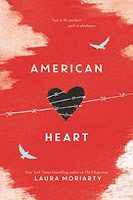
The original review, written by a Muslim woman, called it "suspenseful, thought-provoking and touching."
An online mob, which presumably had not yet read the unpublished book,
saw it differently, as an intolerable "white savior narrative" and worse.
Kirkus took down the review and replaced it with a contrite statement from its editor in chief, Claiborne Smith,
who noted that the review, which was written by a Muslim woman, was being re-evaluated.

When the revised version was posted, it was more critical, and had been stripped of its star.
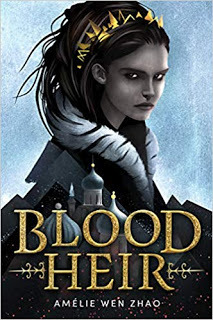 https://www.amazon.com/dp/0525707794
https://www.amazon.com/dp/0525707794Take Amélie Wen Zhao’s Blood Heir
There was a nasty, vicious Twitter "Pile-On" for this poor author.
Her fantasy series, a loose retelling of Anastasia
with a diverse cast of characters and a hefty dose of blood magic,
sold at auction in a high six-figure deal with Delacorte.
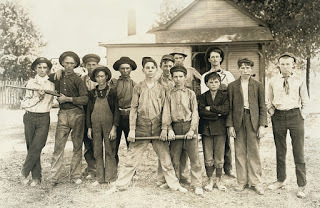
A series of tweets, without accompanying evidence, accused the author of alleged screenshotting-with-intentof authors who disliked her book.
 https://www.goodreads.com/book/show/38205707-blood-heir A smattering of one-star reviews cropped up on Miss Zhao’s page.
https://www.goodreads.com/book/show/38205707-blood-heir A smattering of one-star reviews cropped up on Miss Zhao’s page.

Miss Zhao put a slave auction scene in her book, in which a black character was killed.
Then, the poor woman was called racist.
 .On January 30th Miss Zhao called for her own book to be canceled.
.On January 30th Miss Zhao called for her own book to be canceled.We now live in the Tyranny of the Touchy,where accusation aloneis enough to convict.
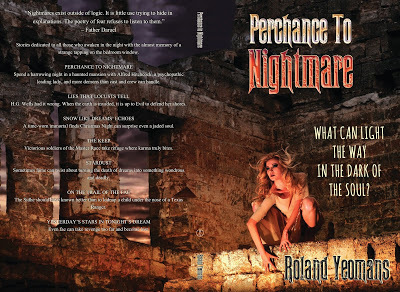 https://www.amazon.com/dp/B07HM8ZS5Q
https://www.amazon.com/dp/B07HM8ZS5QIn my own book set in 1946 New Orleans, I described the deplorable attitude of many whites towards blacks.
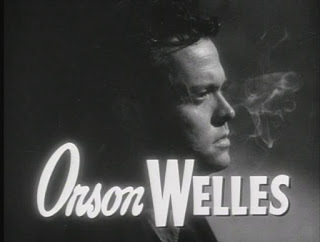
Yet, I also included Orson Welles impassioned advocating for equal rights for blacks
when it was very unpopular to do so.
I so wish he had finished his film, "The Story of Jazz."
He'd signed contracts from Louis Armstrong and Duke Ellington.
Armstrong was cast as himself, Ellington was to have supervised the score.
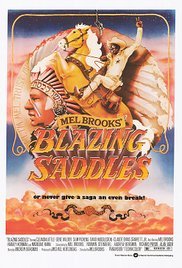 But Mr. Welles, the genius that he was, was barely able to create in his own time,
But Mr. Welles, the genius that he was, was barely able to create in his own time, much less have been allowed to create in ours ...
where Mel Brooks classic movies would be still-born before even reaching the screen.
WHAT DO YOU THINK OF THE TIMES IN WHICH WE LIVE?
Published on February 11, 2019 11:06
No comments have been added yet.



